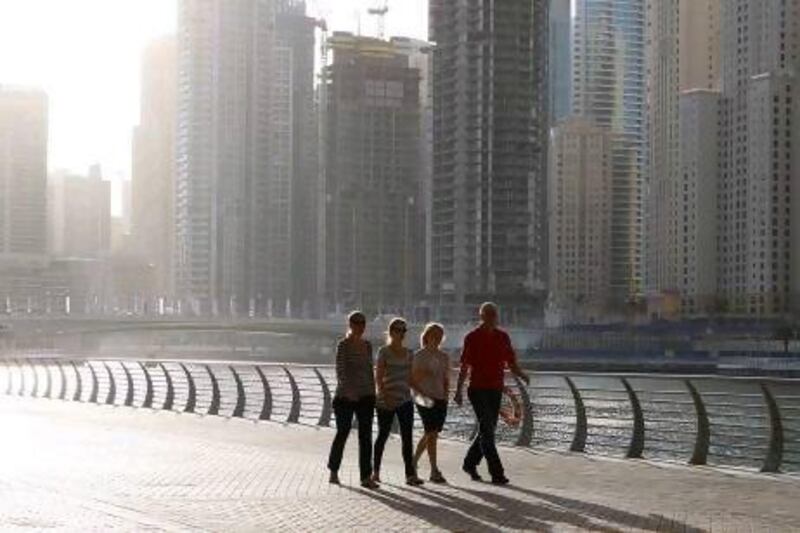For most expatriates, moving to a foreign country is a risk. But, if the numbers are anything to go by, it's one well worth taking because they show that as a class, we have grasped the chance to build wealth in a way that may not be possible at home.
According to a NatWest international survey, we are, as a group, doing rather well compared with our stay-at-home compadres.
The study, published recently in The Telegraph in London, shows almost three quarters of us wandering journeymen have retained our lifestyle standards over the past five years, in spite of the horrible state of the world economy.
Many have even seen it improve, building our finances along the way.
To be sure, we have sometimes been given a bad rep, dismissed as journeymen unable or unwilling to tough it out at home. But is it justified? Hardly. The average expat does not move halfway across the globe in search of a better tan. It takes a certain kind of moxie to trust your financial fate to a distant country, where the laws are different and the safety net of friends and family does not exist.
The world has changed, too. The traditional expat destinations such as the Middle East and Asia may well have once lacked the shine of London, New York and other centres of influence. This is certainly no longer true.
The expats of Hong Kong are now among the best paid in the world. Once an embarrassing leftover from the British Empire, Hong Kong is now the undisputed financial capital of Asia.
Dubai and Abu Dhabi are also contenders for serious money. As the hub of Middle East commerce, the UAE has become the place to be for the ambitious.
Expatriates are also likely to have a better long-term financial plan than their counterparts at home.
HSBC's annual expatriate study shows expectations of higher earnings - and, therefore, higher savings - across a range of countries. For example, 52 per cent of Brits living in Bahrain say they have a much higher disposable income than they did back in Blighty.
And while some of this is spent on lifestyle accessories, much of it is invested. One expat I know paid off a 20-year mortgage in three years while working as an air-traffic controller in Tehran. Another couple are on their third house already, all paid for in full by working in Dubai.
A common theme, too, is how many families choose to relocate. Although the cost of education is likely to be higher, according to HSBC, most agree that their children are happier, safer and more active than they were back home.
The increasing prevalence of families on the expatriate circuit also suggests greater stability for employers. The over-educated backpacker looking to teach English on his spiritual journey to find himself is very much a fading stereotype.
A good friend of mine likes to tell, a touch ruefully, how his father, who had never finished high school, would drag the family from one mining outpost to the next in search of a job. "He always said, 'As long there's machinery and I have a spanner, I've got a job'." They would travel from Kenya to Cape Town and back in six months, often on the back of lorries or leaky ferry boats.
Today's expat is unlikely to be a jack-of-all trades, but a specialist with a degree. Developing countries, especially those with fast-growing economies, have an insatiable appetite for skills. At the same time, most impose stringent visa requirements that insist the interloper brings with him more than just a desire to hang out in a colourful new locale.
South Africa, for instance, goes so far as to demand that companies prove they have been unable to find a locally qualified professional before hiring a foreigner.
There is a caveat to this, however. Most developing economies are acutely aware that to thrive over the long term, they need to replace foreigners with home-grown skills. In time, the expat will become a rare sight in the dealing rooms of Singapore or the oilfields of Saudi Arabia. We belong to a fortunate generation where our skills are needed. Soon enough, we will be extinct.
In the meantime, we get to earn a good living, meet interesting people and have stories to tell our grandchildren someday.
Gavin du Venage is a business writer and entrepreneur based in South Africa.






